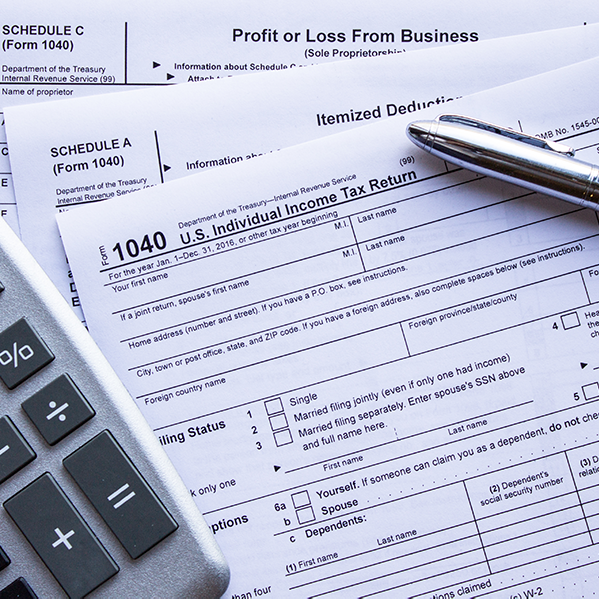Taking care of your business is what we do best.
As a business owner, the last thing you want to do is scramble to prepare your business financials so you can file your taxes. Because the task is so overwhelming, many business owners avoid filing their taxes all together and end up missing out on valuable tax refunds. We’ll help you get your records in order and file your taxes so you can reap the benefits of owning a business.
Get the right forms
Each business type needs different forms. While most IRS forms collect the same information, having the right forms is crucial to meet IRS rules.
Know your deadlines
While individuals are required to file their taxes by the April 15 deadline, certain business entities are required to file in March. In addition, some tax-related tasks have their own deadlines.
Gather your business records
You’re required to report your businesses revenues to the IRS and they must match the agency’s independent verification of your revenue to avoid an audit.
It doesn’t have to be complicated.
Your reporting responsibilities vary depending on how your business is set up. Ensuring you follow the proper filing procedures for your business type can be complicated and inaccurate information can lead to an audit.
Document your expenses
In order to be eligible for the many tax breaks that the IRS offers small businesses you’ll have to show documentation of your expenses.
Information Reporting
You’re required to report certain information to the IRS like employee or independent contractor salary information, rent on rental property, or fees for services provided by professionals.
Tax Deductions
Every deduction counts when you’re a small business. Don’t miss out on important deductions like advertising, car, home office, or depreciation deductions.
Common Business Tax Forms
The paperwork and forms you use to file an income tax return for your business depends on how your business is organized. Here are some of the most common tax forms based on your business type:
Missing important information? WE CAN HELP!
The tax specialists at Jay Finn, CPA have been helping small businesses file complex and unique taxes for over 35 years. There’s no need to stress out or worry about documents that may have gone missing or your incomplete financial records. We can help you get the information you need.
records reconstruction
It’s not uncommon for business owners to misplace important filing documents. We can reconstruct your records according to IRS published guidelines so your filing is complete and error free.
Quickbooks repair
It’s easy for a small business to lose track of their finance’s and get overwhelmed. We’ll repair your accounting records so the IRS gets a complete and accurate report of your financial standing.
Incorrect classification of workers
Invalid or overstating deductions
Delinquent payroll taxes
Failure to withhold payroll taxes
Paying back taxes
IRS Audit letter
Is your business facing tax problems?
You’re not alone? Many businesses find it challenging to keep up with the many financial responsibilities of owning a business. Let our IRS experts take the worry out of your taxes.

Business Tax Resolution
Is your business facing back taxes, an IRS audit, or unfiled tax returns? If you don’t resolve these issues the consequences can be disastrous for your business. The IRS can levy your accounts receivables, seize your assets, and tack on extra fines and penalties.
At Jay Finn, CPA, our tax resolution attorneys will fight the IRS on your behalf to reduce your tax debt. Give us a call so you can stop worrying about your taxes and get back to growing a profitable business.

